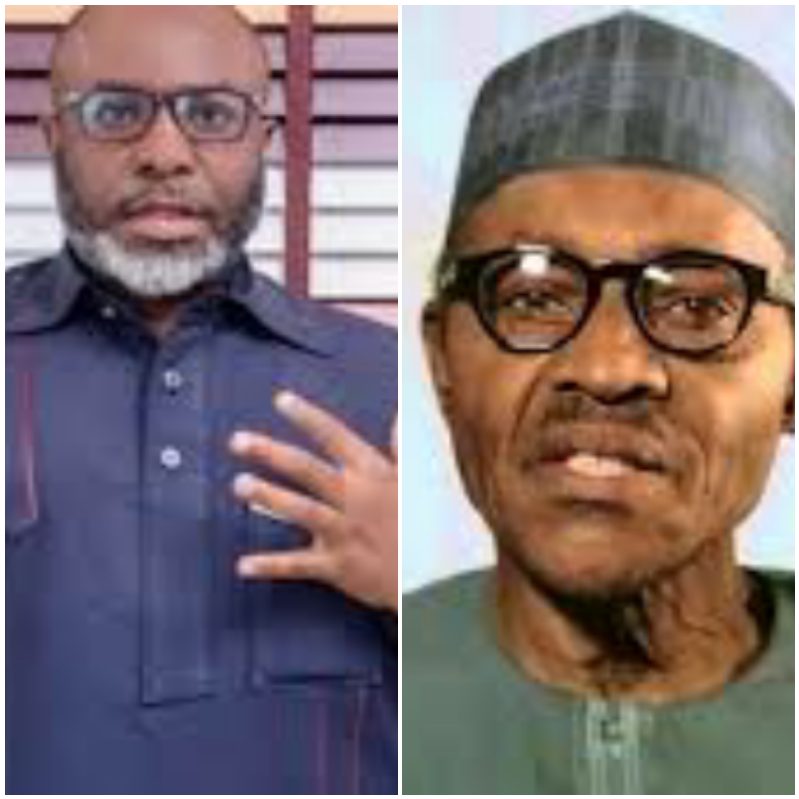DEVELOPMENT Economist, Dr Chiwuike Uba has said that Nigeria’s 2022 Budget Proposal may not be implementable due to what he called unrealistic parameters contained in the fiscal document.
Uba who is the Board Chairman of Amaka Chiwuike-Uba Foundation (ACUF), observed that the 2022 budget may likely suffer credibility problem witnessed in the past years budgets.
Join our WhatsApp ChannelPresident Muhammadu Buhari on Thursday October 7, 2021, presented the 2022 Budget Proposal of N16.39 trillion before a joint session of the National Assembly for consideration and approval.
While commending Buhari for timely presentation of the budget proposal to enable the lawmakers and the public have extensive time to review it, Uba noted however, that revenue estimates in the proposal may be unachievable.
His words, “A cursory review of the proposed fiscal parameters shows that the budget proposal reflects the future of past years budgets. Yes, the budget is replete with some of the mistakes of the past budgets.
“The parameters of the 2022 budget proposal mirror the budget of recent years, both in terms of structure and character. The revenue forecasts and some other budget parameters appear very unrealistic, so the usual credibility problems of previous budgets are likely to shadow the 2022 budget.”
He pointed out that government was making little or no effort to cut cost of governance in line with reality of the times, and no sustainable strategy to recover from the current debt-stricken economic condition, adding that the 2022 budget in its current form lacks the capacity to achieve its objectives.
To prove his point about unrealistic nature of the 2022 Budget, Uba referred to the 2021 budget which he said that according to 2021 half year report, by the government, the economy was yet to witness the desired growth outside the GDP growth statistics, adding that it has been unable to meet up to 30 percent of the fiscal policy objectives set for it.
Describing further the sorry state of the economy, Uba said the external reserves decreased by 10.6 percent from US$36.48 billion in December 2020 to US$32.99 billion in June 2021, steady increase of trade deficit and high import relative to export growth rate.
The development economist also pointed out that the Federal Government acquired additional public debt of N4.9 trillion in the first half of 2021, while domestic debt rose by 10.6 percent from December 2020 to June 2021.
Since 2015, the country’s public debt profile has been rising, from less than N10 trillion in June 2015 to N29.48 trillion in June 2021.
Uba lampooned the current obsession of the government both at federal and state level that borrow just to finance consumption.
“Many of the 2022 budget parameters appear to be either unrealistic or overtly too ambitious. Without any doubt, the budgeted oil price benchmark is in order and could be realized. However, raising the daily oil production budget to 1.88 million barrels per day is overly ambitious and unrealistic. The average daily oil production for the first half of 2021 is 1.61 million. Consequently, it is virtually almost impossible for the federal government to reach 1.88 million in production in light of the increasing insecurity in Nigeria, among other issues.”
Security tops government priority in the budget, but the economic analyst stated that its efforts in tackling security are not well targeted to achieve good result.
He also noted that the projected exchange rate benchmark of N410.15/$1 is not realistic given the volatile nature of the foreign exchange market and available data and trends, adding that no reasonable investor would come into a system with multiple exchange regimes.
For debt servicing, he said, “The N3.6 Trillion’s 2022 budget for debt service is extremely unrealistic.”
He added that, “In the first half of 2021, total debt service is already N2.02trn, which is more than 21 per cent higher than the budgeted debt service of N1.662trn for the same period. This means that the total debt service payment in 2021 may be in the vicinity of N4.3trn. This projection is based primarily on the six-month report and the galloping growth rate of the public debt. Nigeria is accumulating more and more debt in 2021 and plans to finance the 2022 fiscal deficit with additional loans.”
He advised that for government to achieve the 2022 Budget, it needs to invest in key infrastructure, health, education and other key economic and social sectors. He also suggested robust industrialization acrosx the country to help create many jobs that would impact on the lives of the citizens.
Victor Ezeja is a passionate journalist with seven years of experience writing on economy, politics and energy. He holds a Master's degree in Mass Communication.















Follow Us